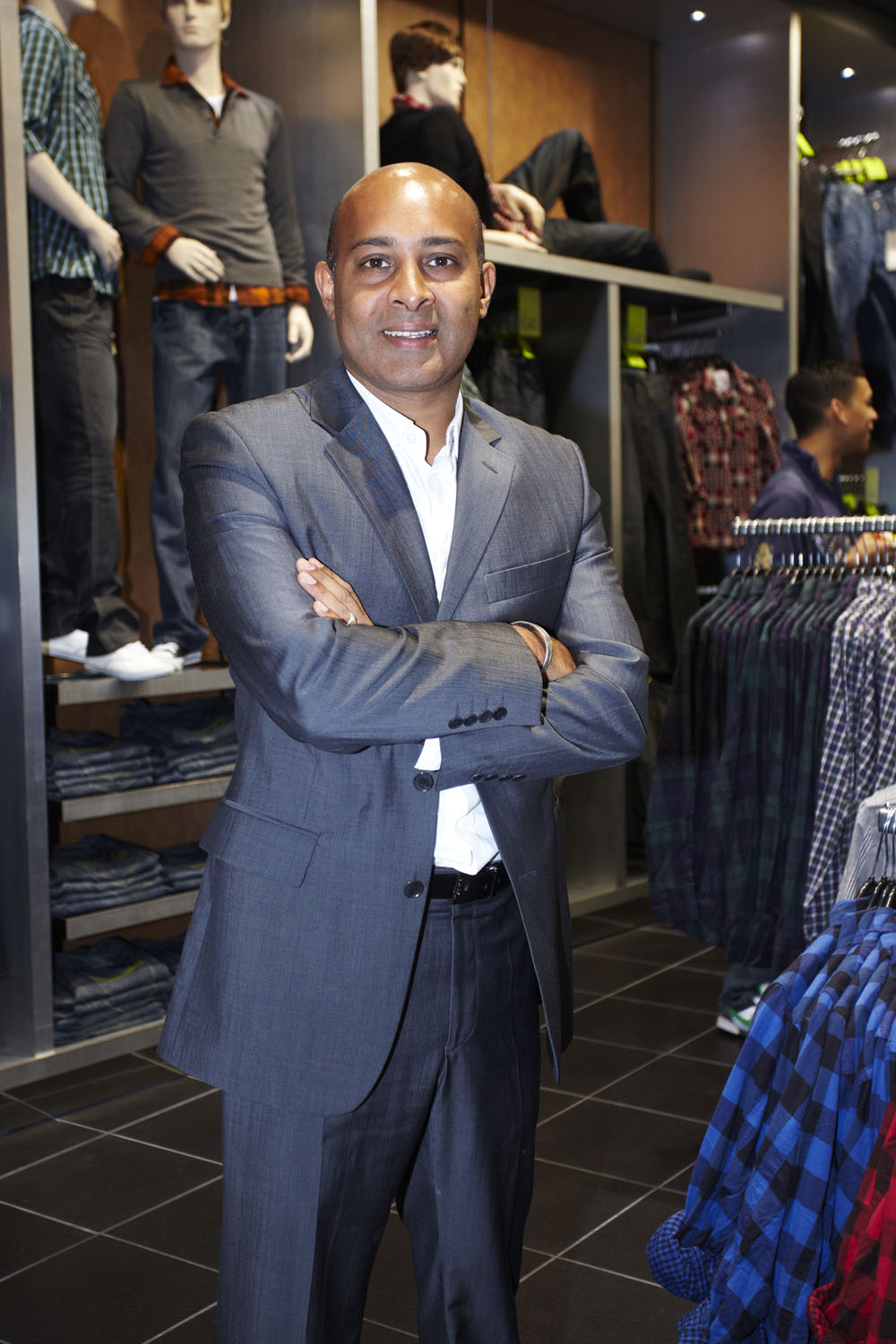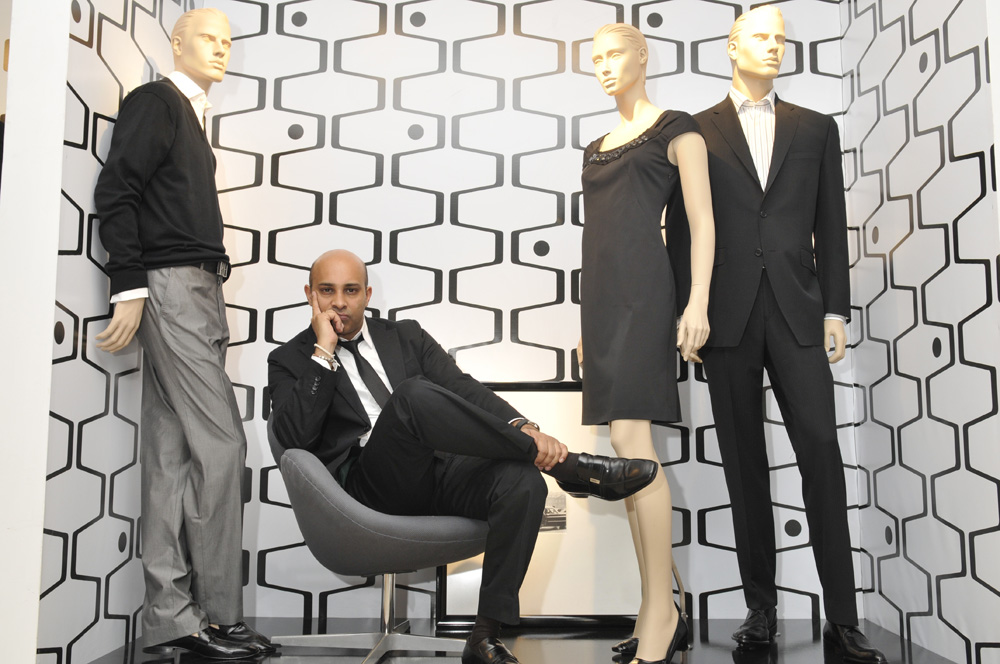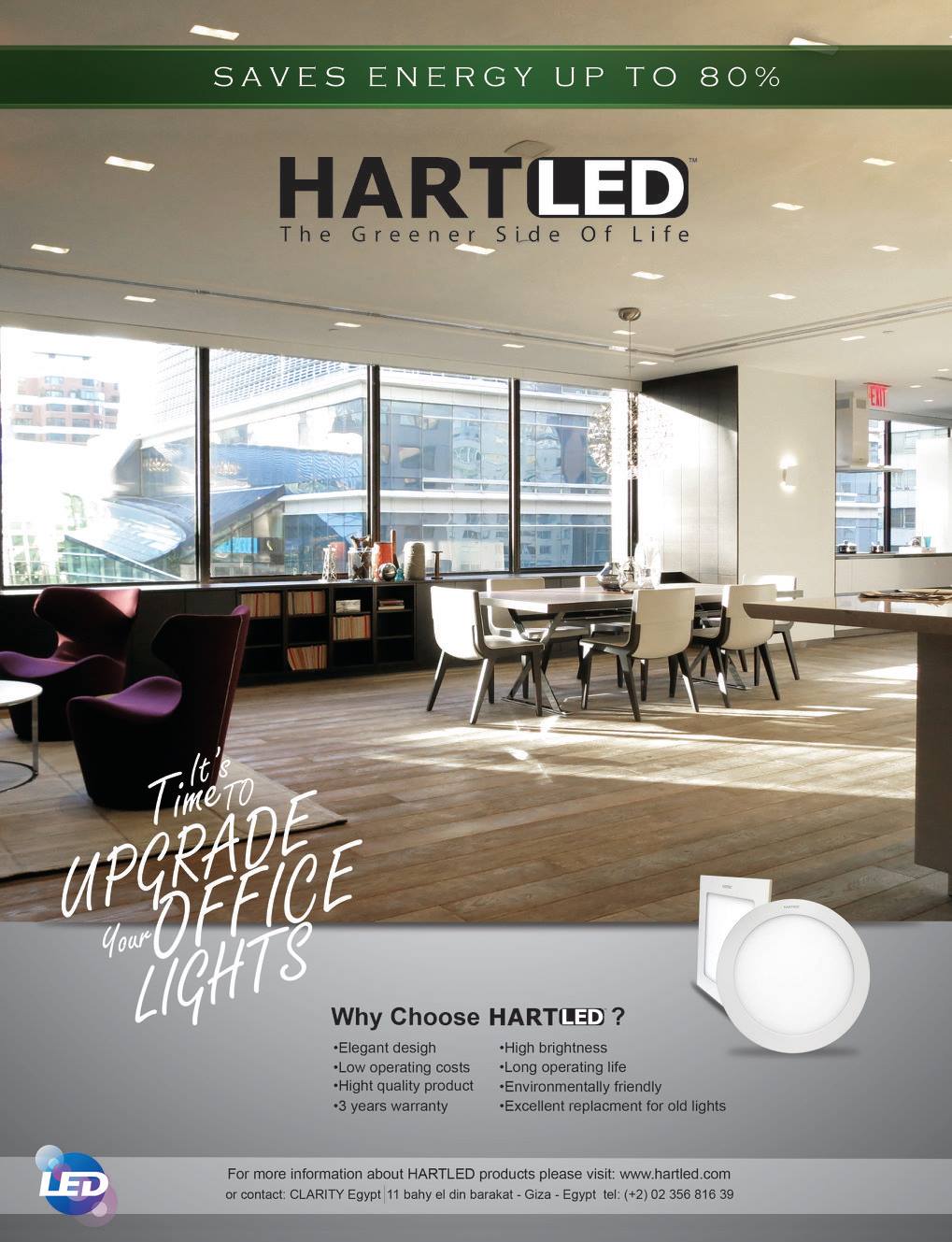ESPRIT’s Alex Cara Talks Business, Style, & 2014
By Hend Seif El Din
 How long have you been with Esprit?
How long have you been with Esprit?
I’ve been with Esprit just over two years now. I started October, 2011.
And prior to Esprit?
I’ve had over 25 years experience in fashion retail. I started very young, when I was 18 years old. My first job was in a local Benetton store, where I started as a stockroom boy; then I worked my way all the way up, moving to different brands.
What are some of the brands you worked with?
Some of the brands I worked with were Nike, for seven years, looking after a very big region including the MENA region and Europe. Prior to Esprit, I worked for a UK fashion brand called New Look, as the Managing Director for all the international business, and before that I worked for four years for a Spanish fashion group called Cortefiel. With Cortefiel, I looked over all of the global expansion, which is why I’ve been here many times.
You told me that two years ago, when you joined the company, you decided to “bring back the brand’s heritage.” How did you do that?
It’s an evolving process. We had a lot of changes with the business over the last few years; we have a new CEO from Zara, and he’s brought with him a lot of very strong and talented product people. The heritage and everything was going back to our roots, West coast California, where Esprit was born. Many people have the perception that Esprit is a German brand, because our global head office is in Germany. It was born in 1968 in California. We are listed on the Hong Kong’s stock exchange…we are in over 40 countries around the world; we are a truly global business.
If you look at the new store concept, in Cairo Festival City for example, you get a much lighter feel, with the wood…a lot more polished, a little bit more relaxed…a West coast kind of thing.
Since you have a new CEO from Zara, and he’s bringing in ideas from Zara, don’t you worry that the identity could get lost again?
No, because I think what he’s doing is not bringing in the concept of Zara; he’s bringing in some of the principles, which is around supply chain, sourcing the product, the fashionability…the DNA of Esprit will always be there, because we are a global brand. We have brand equity around the world, people have heard of Esprit. The name is well known, and he’s very clear with that as well.
I also feel like a few years back, I’d walk into an Esprit store and I wouldn’t really get a strong sense of identity. It was “just” a clothing store. But now, it really has its own identity.
Exactly! That’s exactly what we wanted to do. By going back to our roots, we’ve given the brand its identity (back).
Where do you plan on taking the brand over the next few years?
We now have almost 3000 stores around the world, 60% are owned by us and the rest are owned by our partners. So we really have a lot of stores. I think our focus now is to strengthen the current portfolio and improve the store productivity. There will be a few more markets that we look to explore, such as, Mexico, India. We came out of the Indian market, but we want to go back in. So there are a few markets around the world, but we are being a lot more selective, and our focus now is to help our existing partners and improve store performance.

So are you planning on opening any other flagship stores in Egypt?
Again, you know we are very happy to be working with the Al Futtaim group; it’s a relationship we’ve had for almost two years. We have around 39 stores with them in the region, and Egypt is definitely an important part of that mix. What we’re currently doing is working closely with our partners, making sure we’re in the best locations…best malls–such as Cairo Festival City–which is why we trust our partners. We have to be realistic, Egypt is not Russia or a huge market where we’re going to have 50 stores, but there is still room for opportunity and growth.
Did you have any trouble penetrating the Egyptian market? I’m asking because there are so many brands available these days.
My first visit to Egypt was ten years ago, and I’ve seen the evolution of the retail landscape here. I was coming through every year with various brands, and I knew it was going to happen. When you’re working with big retail groups, you know that Egypt is on their radar.
I see competition as a positive thing for two reasons; one, it’s good for the consumer. When you offer the consumer variety, you’re not forcing them to go into a specific direction; and why shouldn’t the Egyptian consumer have as many options as any other consumer in the world? Secondly, it keeps us on our toes; it doesn’t allow us to get complacent and slack off; so I embrace that. Where, it of course, becomes a challenge, is real estate, because everybody wants the best location, the best mall…and that starts to push the price up as well. It’s a challenge, but I think it’s amazing! And I think that the Egyptian consumer is very sophisticated, really. I don’t see it as really Arab; I see a lot of Mediterranean influence, a lot of culture…a lot of taste. I see the women…the way they shop, they way they dress, it’s really beautiful. So why not bring all the brands in?
Any plans for 2014?
Our biggest focus for us at the moment, as a group, is really the product. We have a new Chief Product Officer, who’s come from Zara. He heads up all the products divisions, so he’s the boss of the whole product engine of Esprit. We’ve also developed a new collection called “trend,” which is a little bit more fashionable, and we will get to the stores quicker; shorter lead time in manufacturing, logistics…slightly more commercial pricing. It’s mostly about getting the product to the stores much quicker.
We’re also continuing with our refurbishment program. As you see, our new store in Cairo Festival City has that new concept. So we plan to attack, with our partners, and focus on the flagship stores. We’ve seen a 30-to-40% increase in sales at the stores we’ve refurbished! So it’s clear that the consumer sees the brand in a very different way.
Why did you come up with “trend” in the first place?
This is something that’s been driven by our new CEO, and in a way it’s similar to the Zara model; following the trends of the catwalk very quickly and getting it out to the stores.
But isn’t that more of a strain on the company though? Having to design new items and producing them faster than usual?
No, not really. We already started this since August; we have a new team that is built around this. It’s a very small part of our business at the moment. The idea really is to take the philosophy of this and introduce it to the other, bigger divisions. Just being quicker.
Moving on to the designers of Esprit…I assume they draw inspiration from runways?
Absolutely! We have a team of designers in-house; it’s integral to the divisions and categories. They travel to exhibitions, seminars…all over the world, to see the latest trends and capture those as well. It’s fundamental.
When I looked at the collection in the Cairo Festival City flagship store, for example, it’s very trendy and up-to-date, but it’s also wearable, as opposed to other brands who create pieces that not everyone could–or would–wear.
That has a lot to do with the DNA of the brand and our sector…our consumer target. We have a line called “edc,” which is a younger brand, a little bit more fashionable…so that’s where we have more risqué pieces. But we’re not that extreme. What we’re trying to focus on more is the value element of our product. We don’t overprice; you truly pay for the quality.
Who, would you say, is your “perfect” customer? Who do you have in mind when you’re designing or running the business?
I think our core consumer can vary to a degree around the world. But ultimately, she’s anything from mid 20s up until mid 40s; it’s quite a broad range. And I think our categories focus on that as well. We do have a lot of casual styles, but then we have formal wear and office wear. We’re trying to strengthen our broad range.



